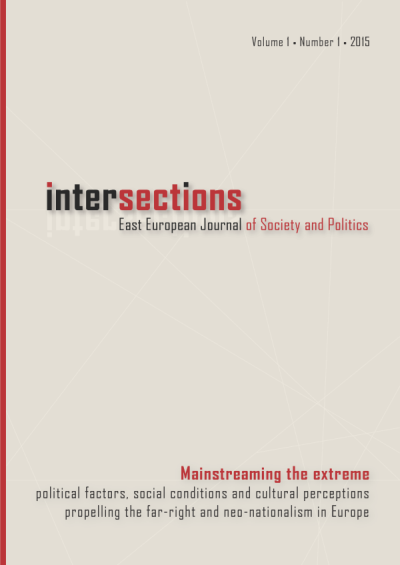Drifting from Liberal Democracy
Drifting from Liberal Democracy
Traditionalist/Neo-conservative Ideology of Managed Illiberal Democratic Capitalism in Post-communist Europe
Author(s): Iván Szelényi, Tamás CsillagSubject(s): Social Sciences, Political Theory
Published by: MTA Társadalomtudományi Kutatóközpont Kisebbsegkutató Intézet
Keywords: post-communist capitalism; managed and illiberal democracy; transition from communism to capitalism; neo-patrimonial and neo-prebendal forms of ownership; traditionalism/neo-conservatism
Summary/Abstract: Most European post-communist societies after 1989-1991 appeared to be on the road to liberal democratic capitalism. However, a quarter of century after the change of the system, at least some of the countries – Russia and Hungary in particular (arguably setting a trend for many other nations) – began to drift sharply away from liberal democracy. We treat liberalism and democracy as two distinct dimensions of “good governance”. We interpret liberalism as separation of powers and security of private property rights. We interpret democracy as majoritarian rule. As the regimes shift to illiberalism, secure private property tends to be converted into “fief” (neo-patrimonialism – like during the rule of Yeltsin), or eventually into “benefice” (neo-prebendalism, this turn happened with the rise of Putin to power). While the principle of majoritarian rule is retained, it is also “managed”. But as long as democratic institutions operate, as long as leaders are elected to office the ruling elites of illiberal democracies need a legitimating ideology which can appeal to a broader electorate. We call this post-communist traditionalist/neo-conservative ideology. Post-communist traditionalism/neo-conservatism emphasizes the value of patriotism, religion and traditional family values much like some of the socially conservative republicans in the USA do.
Journal: Intersections. East European Journal of Society and Politics
- Issue Year: 1/2015
- Issue No: 1
- Page Range: 18-48
- Page Count: 31
- Language: English

